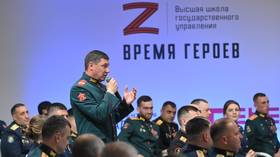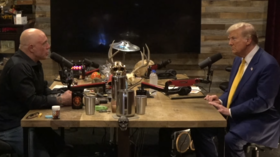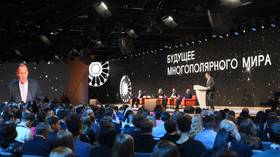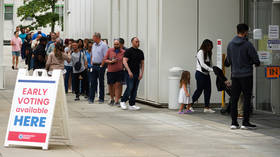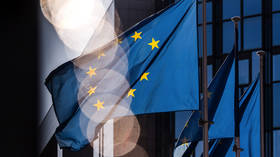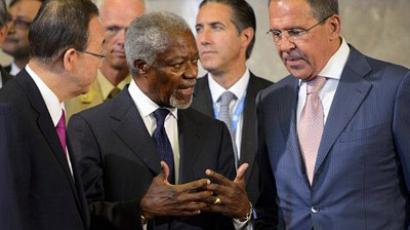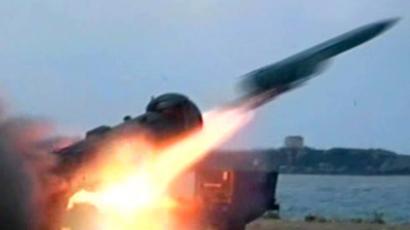Annan to Syrians: Cease fire or face consequences
The UN special envoy to Syria, Kofi Annan, has urged the Security Council to warn Assad and the opposition of “consequences” if they do not comply with the ceasefire plan. Meanwhile, the Western members and Russia came up with two rival resolutions.
"[Annan] called for the Security Council members to put aside their national interests and to put joint and sustained pressure on both parties with clear consequences for non-compliance," Britain's UN Ambassador Mark Lyall Grant said at a UNSC meeting on Wednesday according to Reuters.But there is an apparent split in the UNSC over what those consequences should be and what side of the Syrian conflict should suffer them. The United States, Britain, France and Germany insist that the Syrian government should be threatened with non-military sanctions if President Bashar Assad fails to halt the use of heavy weapons by the end of a 10-day deadline. Russia, on the other hand, says that sanctions are the "last resort."The United Kingdom, in consultation with the US, France and Germany, circulated among the Security Council members a draft resolution recommending that the UN observer mission (UNSMIS) be extended for 45 days, in addition to the implementation of Annan's six-point peace plan to create a transitional government in Syria under Chapter 7 of the UN Charter. The latter allows the authorization of actions ranging from diplomatic and economic sanctions to military intervention.The Western proposal condemns "the Syrian authorities' increasing use of heavy weapons, including indiscriminate shelling from tanks and helicopters" and counters an alternative resolution drafted by Russia. In its proposal, Moscow suggests extending the UN observer mission in Syria by three months and mentions no sanctions."Kofi Annan did not ask us to apply sanctions," Russia's Deputy UN Ambassador Aleksandr Pankin told reporters after Annan's briefing. "He just said that the Security Council should … send a signal that its suggested recommendations and actions have to be implemented or there will be consequences."He also added that “Chapter 7 is a last resort” and “is not a very efficient mechanism.”Syria’s UN Ambassador Bashar Ja'afari has warned that talking sanctions will not help efforts aimed at ending the conflict. He insisted that Damascus was committed to Kofi Annan's peace plan, adding that the success of this plan “depends greatly on ceasing the arming and funding of the armed groups in Syria.”Negotiations on both draft resolutions will start in New York on Thursday. The vote has to take place before July 20, when the UNSMIS mandate in Syria expires.
Hard talk in Moscow
Meanwhile, tough negotiations have been taking place in Moscow, where Russian Foreign Minister Sergey Lavrov has been meeting with members of the Syrian National Council – the main opposition alliance.The talks brought no meeting of minds, with the opposition group insisting President Assad's regime must be deposed before there is peace. The alliance also called on the United Nations to intervene to bring stability to Syria.The editor of the Pan-African news wire, Abayomi Azikiwe, blames the bulk of the crisis in the Arab country on the actions of the opposition.“They have rejected the initial peace plan that was put forward by Kofi Annan and the United Nations – that was endorsed by the Syrian government, by other forces throughout the region, by Russia, as well as China,” he told RT. “But the backers of the Syrian National [Council] and the so-called Free Syrian Army have opposed any effort aimed at dialogue to bring about a political solution to this crisis.“They have refused to acknowledge any type of ceasefire, they have continued their aggressive activities against the Syrian government. As a result of that, the Syrian government has had no choice, except to engage in these military maneuvers that we’ve seen over the last couple of days,” said Azikiwe.


